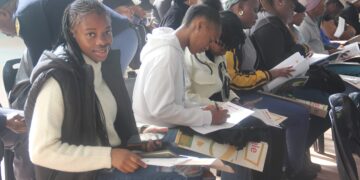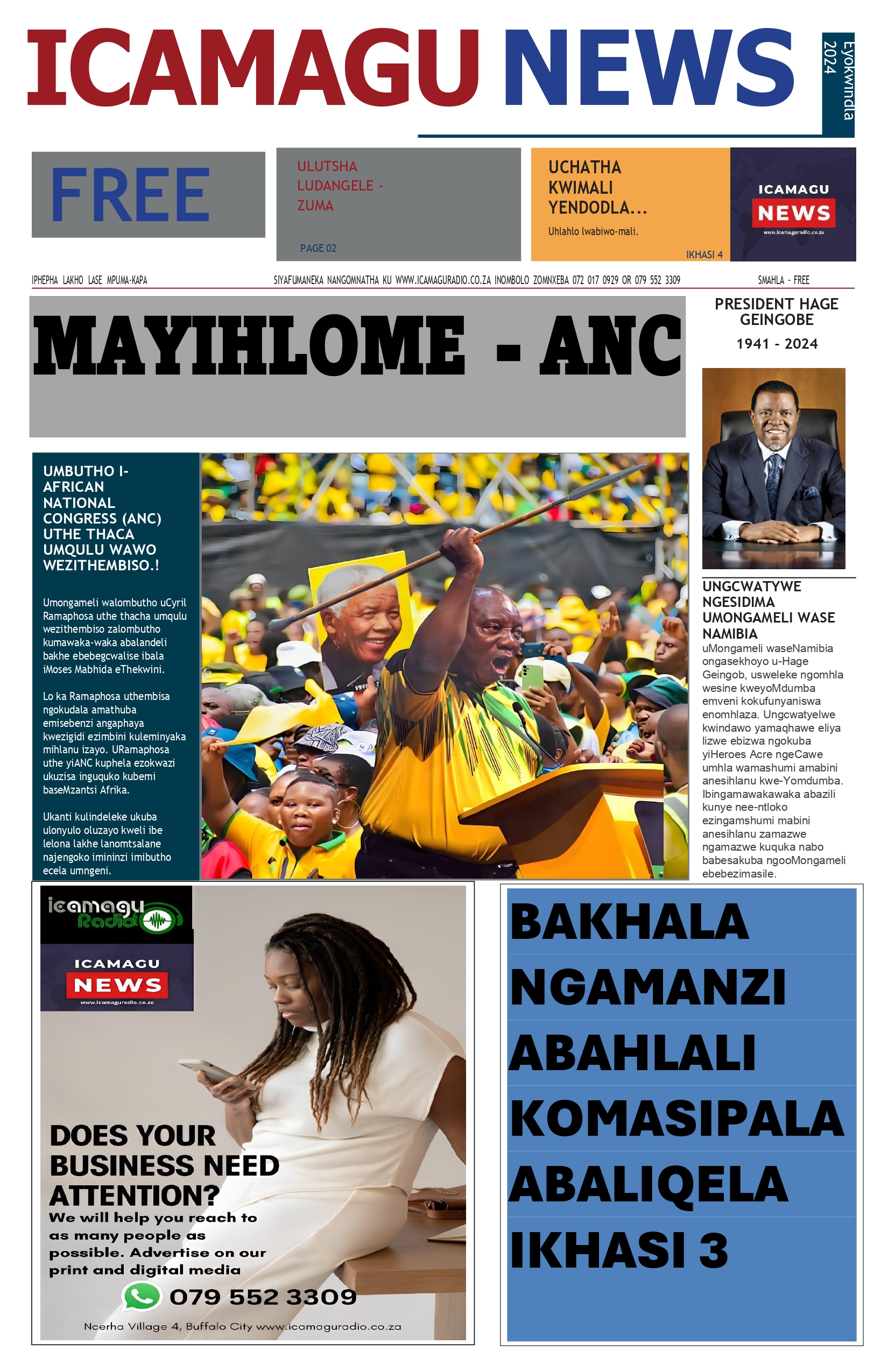By Lulama kaSozathini
South African pianist, healer, and scholar Nduduzo Makhathini has released his third Blue Note album uNomkhubulwane which is produced by the label’s president Don Was. The transcendent three-movement suite pays homage to the Zulu Goddess uNomkhubulwane. Makhathini is set to close the women’s month by bringing his latest work to the East London Guild Theatre on the 29th of August 2024. Makhathini is not a stranger to the Eastern Cape music scenes, he has toured extensively and recorded with the late Zim Ngqawana and Feya Faku in his former years. He also headed the music department at the University of Fort Hare for several years while producing many Eastern Cape artists, and quite recently, Thandiswa Mazwai’s Sankofa.
Makhathini’s magnum opus uNomkhubulwane travels beyond any existing notion of music-making to offer his most profound vision of creative mysticism yet. Here the pianist seeks inspiration on a wholly metaphysical plane — using sound as a way to commune with, as he puts it, “supernatural voices.” To say it another way, rather than relying on the celebrated work of his American and African jazz heroes, or even on the probing research in his academic fields of study, Makhathini opts here to tap into the pure essence of being — an otherworldly effort that involved “listening-hearing-sensing and establishing a relationship with an ‘elsewhere’ through some guidedness.” Throughout uNomkhubulwane, Makhathini acts as both a futurist and an ancient, venturing into the unknown by exploring concepts that return him to the dawn of time.

In line with Women’s Month celebrations, Makhathini reminds us that uNomkhubulwane is a Zulu name of “God’ sonly daughter and a manifestation of God’s very creation purpose,” the pianist explains. “She is also believed to be a mythical rain goddess, a regulator of nature, light and fertility.” A shapeshifting force, uNomkhubulwane can manifest in the form of an animal, or a hurricane or a rainbow — the lattermost of which, Makhathini says, symbolizes her “kindness and regulation of balance.”
The suite emerged out of a “mother song” afforded to Makhathini during the initiation process he underwent to become a healer. There, he was immersed in water in order to encounter uNomkhubulwane, who gifted him this song. “The first movement ‘Libations,’” he says, “deals with collective black memory inside a state of protest against ongoing oppression[s],” adding that “this movement invokes an eternal state of black mourning that has made uslose our ‘voices,’ and even though we still cry, we do not have tears anymore.” The second movement, ‘Water
Spirits,’ deals with vital energy and restoration — a proposal of “cleansing and summoning of essence.” The final movement, “Inner Attainment,” focuses on “freedom, hope and grace,” and the striving toward a transcendence that would bring abundance back to our current time and physical plane. As always, Makhathini’s message is ultimately one of perpetual optimism for his people, and for all people.
“Essentially, this offering is an invitation to humanity to cultivate ways of being that yearn for freedom and balance,”
For more information on the show you may contact Sinethemba Gayiza on 073 543 4118




















